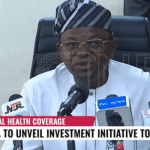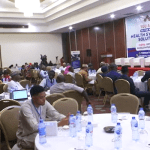As the world community commemorates World Health Day with the theme “Health for All,” it emphasises the need for a renewed commitment to health equity as the key to tackling future health concerns.
The World Health Organisation has been serving humanity for seven and a half decades.
In the African region, about 25 percent of health expenditures come out of people’s pockets and as a result hundreds of millions of people are further pushed further below the poverty line due to spending on health.
One major aspect of the drive to achieve health for all from the perspective of the world health organization is the attainment of universal health coverage
This seeks to provide affordable, equitable, and sustainable health care to all its citizens.
For this to be achieved, two key themes need to be addressed: health insurance and the improvement of the primary health care system
These remain largely unachieved.
According to a 2021 report only about 3 percent of Nigerians have health insurance.
The country also accounts for about 30,000 primary health care centres but only one third out of this number are functional plagued by several challenges revolving around poor governance, poor human resources, and inadequate funding.
The challenges continue despite government’s intervention to achieve some strides in the health sector.
In recent times, non profit organizations have carved a niche for themselves while supporting communities.
They create little impacts by closing the gaps that exist in getting health care in these communities but their efforts have remained like drops in the ocean.
Addressing the root causes of these challenges that hamper the effective delivery of health care is what the world health organization is urgently pushing for as the world marks the world health day.
It also calls for a paradigm shift towards promoting health and wellbeing in preventing diseases.
Learning from the worst pandemic in recent history, the global health event comes with the need for African countries to protect healthcare systems through the provision of support to build the capacity of health workers to improve health resource.













